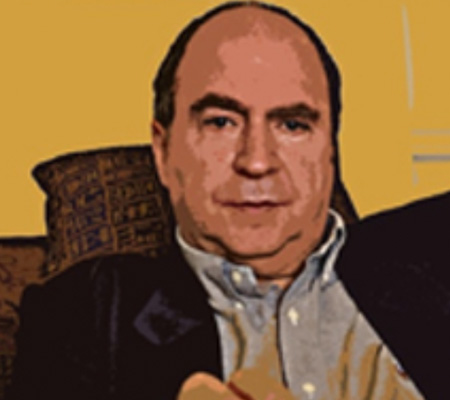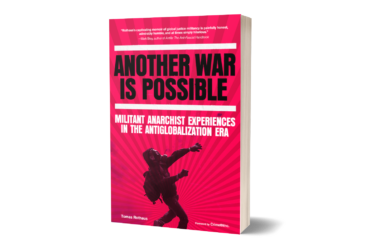Tribute to the revolutionary thinking of the Glaswegian writer jailed in Spain when a teenager for plotting to blow up Franco
By Vanessa Thorpe
The Observer
June 12th, 2022
To the British authorities of the 1970s the suspected terrorist Stuart Christie represented a dangerous menace, but to his admirers he was brave, principled and gifted.
Now the public will have the chance to judge for itself as a comprehensive Christie archive – a record of his life as a prominent anarchist, author, leftwing publisher and would-be political assassin – goes on show for the first time.
It will include unseen letters written by the incarcerated 18-year-old Christie, held in Spain for planning to kill the fascist dictator Francisco Franco, as well as a range of personal photographs never displayed before.
After a lengthy fundraising campaign, the Stuart Christie Memorial Archive will be launched on 22 June at the MayDay Rooms in Fleet Street, London. The images, book covers and personal documents the archive contains chronicle Christie’s creative career, his infamous brushes with the law and his impact on revolutionary thought in Britain, and it will also be available online.
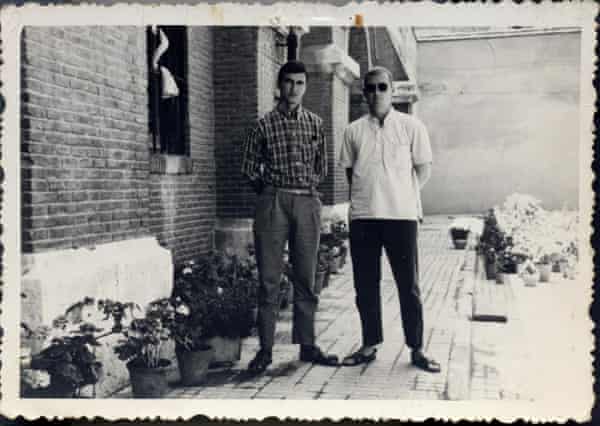
Christie and fellow British prisoner Jimmy Wagner at Carabanchel prison, Madrid, in 1967. Photograph: Stuart Christie Memorial Archive
Born in 1946 to a hairdresser and a Glaswegian trawlerman, Christie is now often associated with the Angry Brigade, the small group of leftwing terrorists and agitators who were tried for mounting a series of bomb attacks in London in the early 1970s.
Christie is also still celebrated by some for having attempted to blow up Franco in 1964, a crime for which he faced possible execution.
Instead the teenager was sentenced by a military court to 20 years in prison, while his Spanish accomplice, Fernando Carballo Blanco, got 30 years. Christie’s sentence prompted international protests, including from eminent philosophers Jean-Paul Sartre and Bertrand Russell, and he eventually served only three years in Madrid’s Carabanchel prison, using his time there to study and mix with anarchist prisoners.
Releasing Christie early, the Franco regime claimed it was responding to a plea from Christie’s mother.
In later life Christie lived in Hastings on the south coast of England and died two years ago at 74. In his obituary in the Guardian, the journalist Duncan Campbell gave details of the notorious failed assassination in Spain. Christie’s mission had been to deliver plastic explosives to Madrid so the dictator could be killed while he attended a football match. Christie, who Campbell described as “a man of great charm, warmth and wit”, had told his family he was going grape picking in France. Dressed in a kilt, he hitchhiked from Paris to Spain but was picked up due to infiltration of the Spanish conspirators in Madrid. Christie signed a confession after being forced to watch his accomplice being tortured.
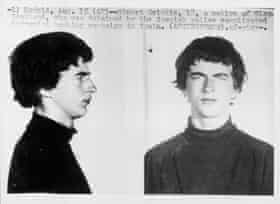
Christie at 18. Photograph: Stuart Christie Memorial Archive
His friend Ron McKay has recounted Christie’s own memories of the military trial, which he could not understand because it was conducted in Spanish by 11 army officers “heavy with medals”. “He said he felt he had been transported into the final act of some grand opera. ‘I was 18 years and six weeks old, a boy from working-class Glasgow, and I’d never been to the opera,’ he remembered,” McKay wrote.
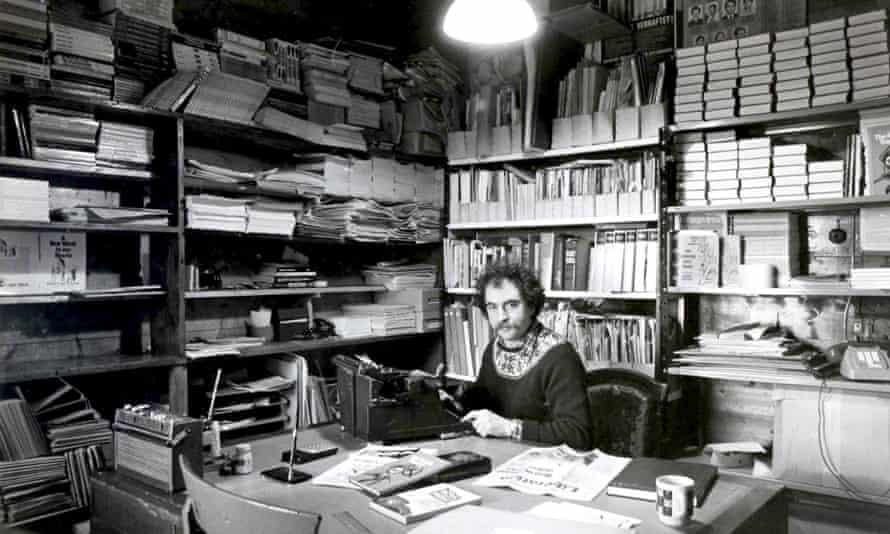
Christie in 1980 at the rugged ‘office’ in Orkney where he ran Cienfuegos Press. Photograph: Stuart Christie Memorial Archive
But Christie has another legacy for those who read his fiction and prose. For these literary fans he was a talent whose reputation as a creative thinker has been hampered by associations with violent political campaigns.
The memorial archive, brought together by researcher Jessica Thorne, an expert on anarchist prisoners in Franco’s Spain, includes photographs, letters, personal objects and artwork as well as samples of the output of his publishing arms Cienfuegos Press, Christie Books and the Anarchist Film Archive.
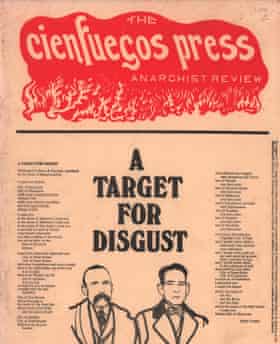
An anarchist review from Christie’s Cienfuegos Press. Photograph: Stuart Christie Memorial Archive

